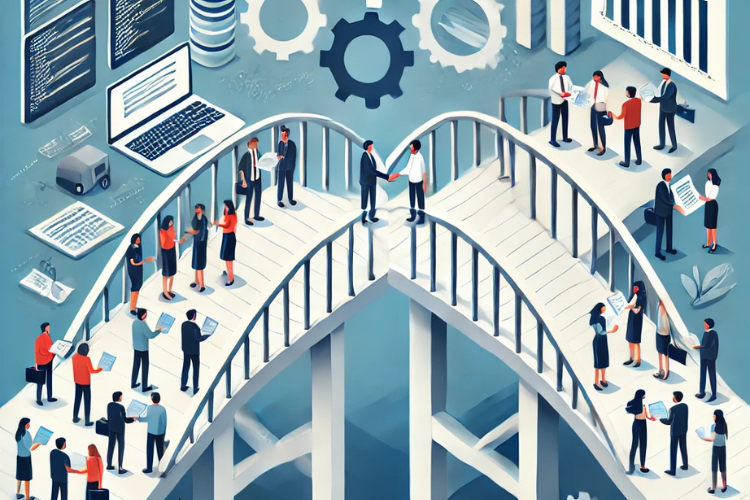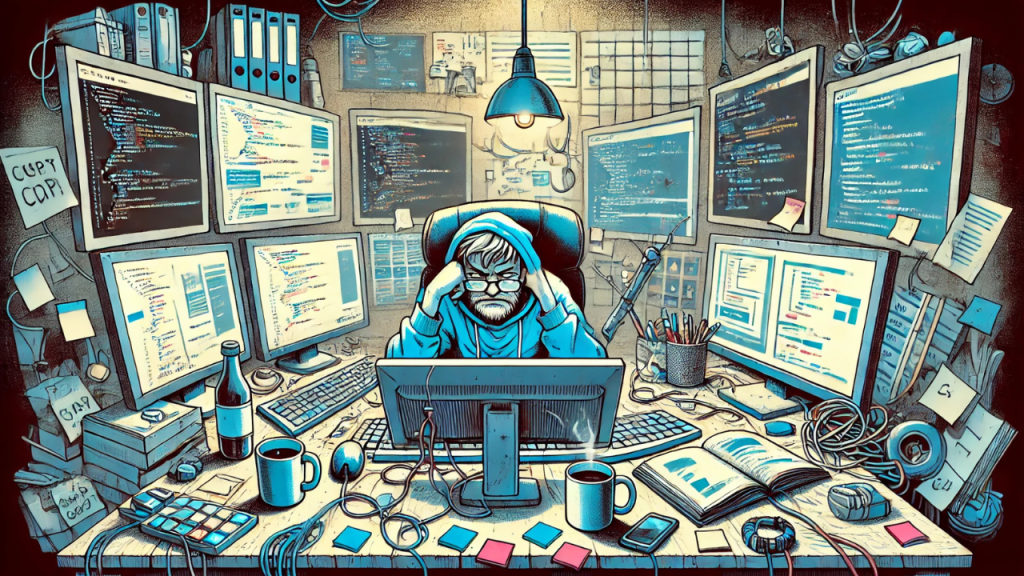Introduction
Have you ever wondered why software developers often seem grumpy? This stereotype has persisted for years, but there’s more to it than meets the eye. Developers work in a challenging and demanding field, and their demeanor often reflects the pressures they face. Inspired by Mahesh Babu’s thought-provoking blog, this article explores the key reasons behind this perception. Let’s dive into the realities of a developer’s world and understand the challenges that shape their behavior.
1. The High-Stakes Nature of Software Development
Software development is not just coding; it’s solving complex problems. Developers often deal with intricate systems that demand deep focus. Interruptions can derail their thought process, which can make them appear distant or annoyed.
Deadlines add to the pressure. Teams are expected to deliver flawless code on time, often with limited resources. This constant stress creates a high-pressure environment. When developers seem grumpy, it’s often due to the mental strain of balancing quality and deadlines.
Moreover, coding isn’t forgiving. A single error can disrupt an entire project. The precision required adds to the tension. Over time, this stress becomes visible, contributing to the stereotype.
Developers also deal with shifting project requirements, which can complicate their work further. Adjusting to changes mid-project demands extra effort, causing stress levels to rise. These sudden changes often lead to longer work hours, leaving little time for rest and recovery.
2. The Relentless Pace of the Tech Industry
The tech world evolves rapidly. New tools, frameworks, and methodologies emerge constantly. For developers, staying current is not optional; it’s essential.
This relentless pace means developers must continually learn and adapt. Juggling learning with work can feel overwhelming. The fear of falling behind adds to the stress.
Developers often work late hours to stay ahead, sacrificing personal time. This imbalance can take a toll on their mood. When they seem grumpy, it’s often a reflection of this unending cycle of learning and adaptation.
Adding to the complexity, some tools and technologies become obsolete quickly, forcing developers to abandon familiar methods for newer, untested ones. The constant need to adjust and experiment with new technologies can create additional frustration.
3. Debugging: The Frustration Magnet
Debugging is a core part of a developer’s job, but it’s rarely enjoyable. It’s a tedious process that requires tracking down elusive bugs. These issues can take hours or even days to resolve.
The repetitive nature of debugging can wear anyone down. Imagine spending hours fixing a problem only to discover it was caused by a minor oversight. This frustration can spill over into their interactions, making them seem irritable.
Debugging also involves trial and error. It’s not a linear process, which makes it even more taxing. Developers’ patience is often tested during these moments, contributing to their seemingly grumpy demeanor.
To make matters worse, developers sometimes encounter problems caused by external factors, such as poorly written code from other teams or outdated documentation. These obstacles can add to their frustration, making the process even more challenging.
4. Bridging the Technical-Non-Technical Divide
Developers frequently work with non-technical stakeholders. These interactions can be challenging. Explaining complex technical concepts to someone unfamiliar with the field takes effort and patience.
Misunderstandings are common. Stakeholders may have unrealistic expectations, assuming that development tasks are quicker or simpler than they are. This disconnect leads to frustration on both sides.

Developers also face the added burden of managing these expectations. Repeating explanations and addressing misunderstandings can be draining. Over time, this communication gap adds to the perception of developers being grumpy.
Additionally, developers are often asked to implement last-minute changes or features, which can disrupt their workflow. The lack of clear communication or understanding about project timelines and priorities further exacerbates the situation.
5. The Perfectionist Trap
Most developers are perfectionists. They strive for clean, efficient, and bug-free code. While this dedication is admirable, it often leads to self-imposed pressure.
Perfectionism can be a double-edged sword. On one hand, it drives excellence. On the other hand, it creates stress. Developers hold themselves to high standards, which can be mentally exhausting.
External pressures, such as client demands or management expectations, compound this issue. The combination of internal and external stressors often manifests as a grumpy demeanor. However, it’s important to recognize that this attitude stems from their commitment to delivering the best possible work.
Perfectionism also leads developers to spend extra time refining their work, often beyond what’s necessary. While their attention to detail is commendable, it’s also time-consuming, leaving little room for relaxation or other pursuits.
Conclusion
The stereotype of grumpy developers is rooted in the challenges of their profession. From solving complex problems to navigating the fast-paced tech industry, developers face unique pressures. Debugging, managing communication gaps, and striving for perfection add to their stress.
However, their grumpy appearance doesn’t define them. It’s a reflection of their dedication, focus, and commitment to excellence. By understanding their challenges, we can appreciate the value they bring to the tech world.
Next time you encounter a grumpy developer, remember the incredible effort they put into creating the tools and systems we rely on. A little empathy can go a long way in bridging the gap between perception and reality. Articles like this on StartupHakk shed light on the nuances of tech roles, fostering better understanding and collaboration.
Recognizing these struggles and providing support can make a significant difference. Whether it’s offering flexible deadlines, encouraging regular breaks, or simply showing appreciation, small gestures can help create a healthier and more productive work environment for developers.




